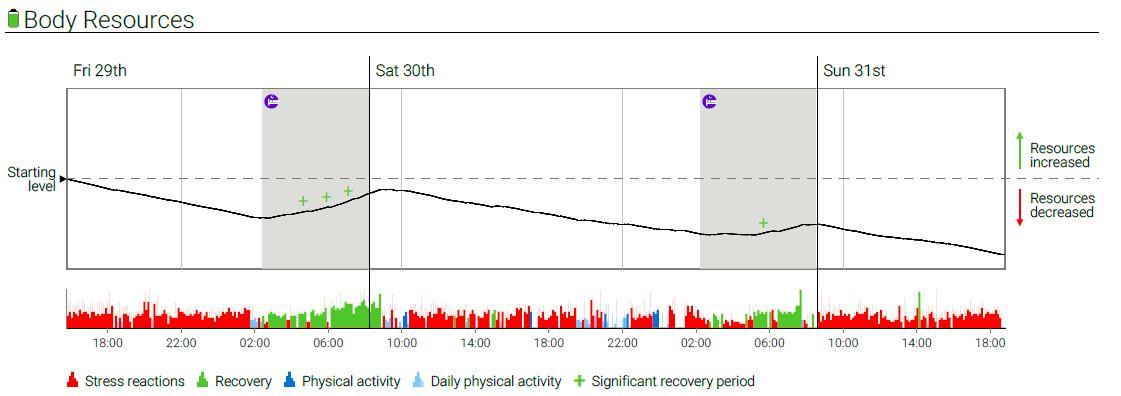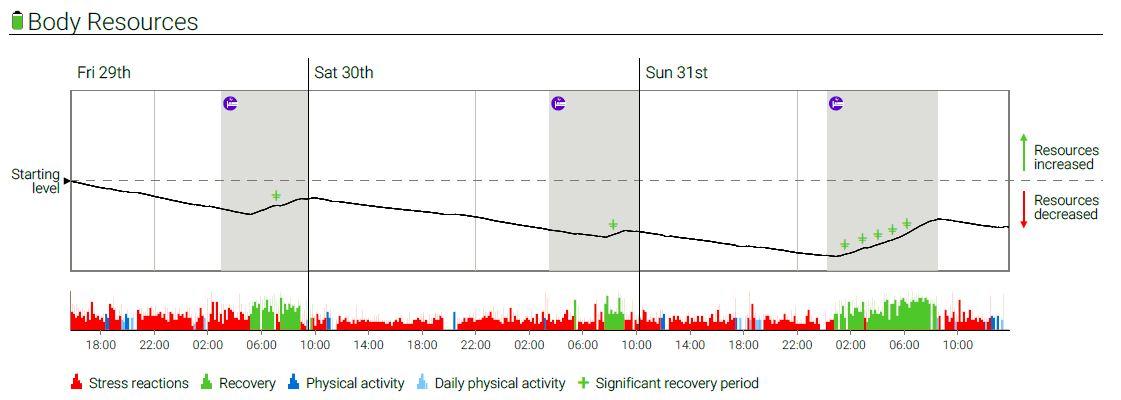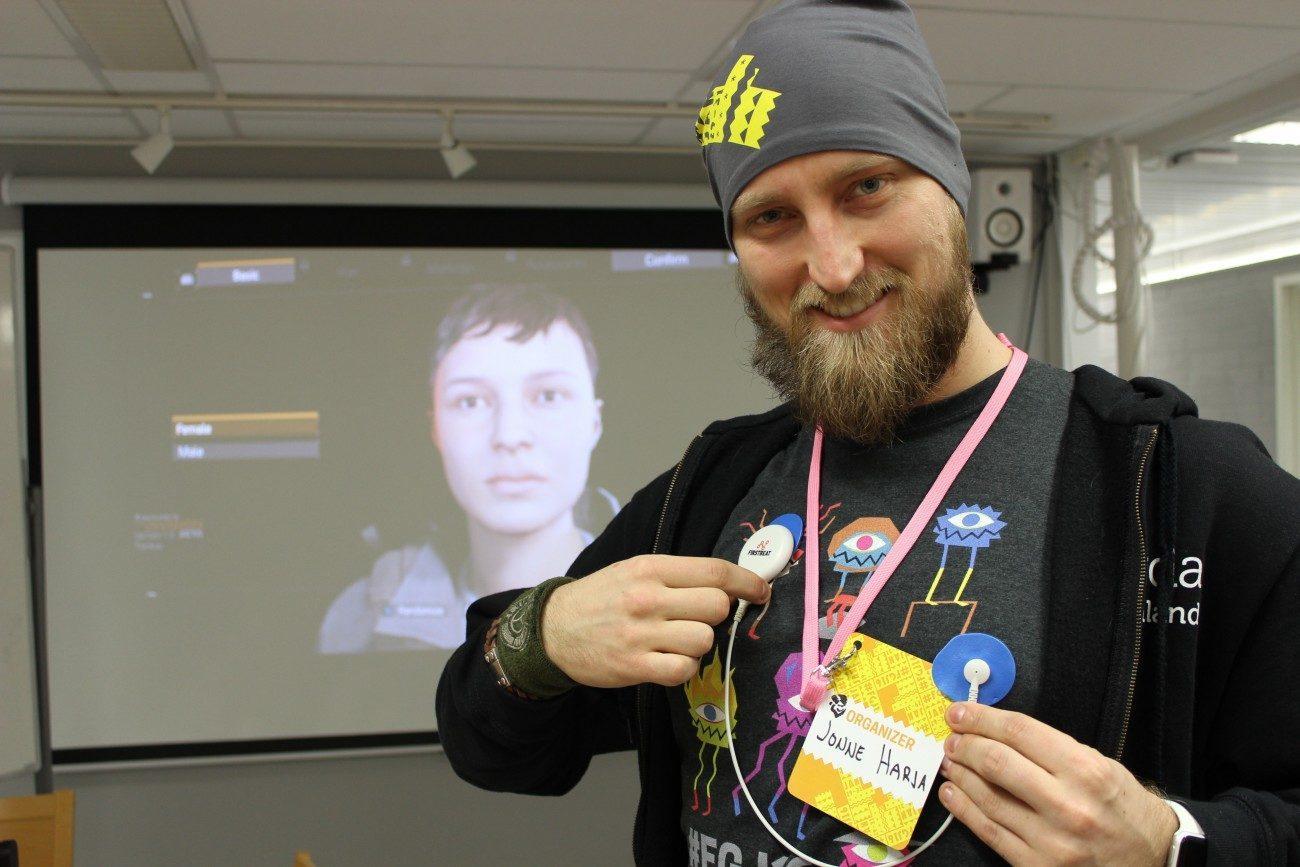
We analyzed the stress and recovery levels of two Finnish Game Jam organizers to see how they dealt with the hectic weekend of game development.
Early on Saturday afternoon, the smell of freshly brewed coffee hangs in the air of an office building a few blocks away from the center of Jyväskylä. Game developers and designers, mostly in their twenties, sit in front of their screens. Some have stayed up all night coding or designing games. Someone has slept a few hours in a sleeping bag on the floor.
We are at one of the over 600 sites of Global Game Jam – the biggest game jam event in the world. This year over 36,000 jammers in 93 countries are creating games from a scratch over a weekend.
Analyzing Game Jammers heart rate and diary
Two members of the local organizing team, Jonne Harja and Sasu Louke, sit at a table in the main area next to a pile of empty energy drink cans. Under their Game Jam t-shirts, green lights of Firstbeat Bodyguard 2 heart rate devices are flashing.
Firstbeat is here to show how the human body copes with such a tumultuous event.
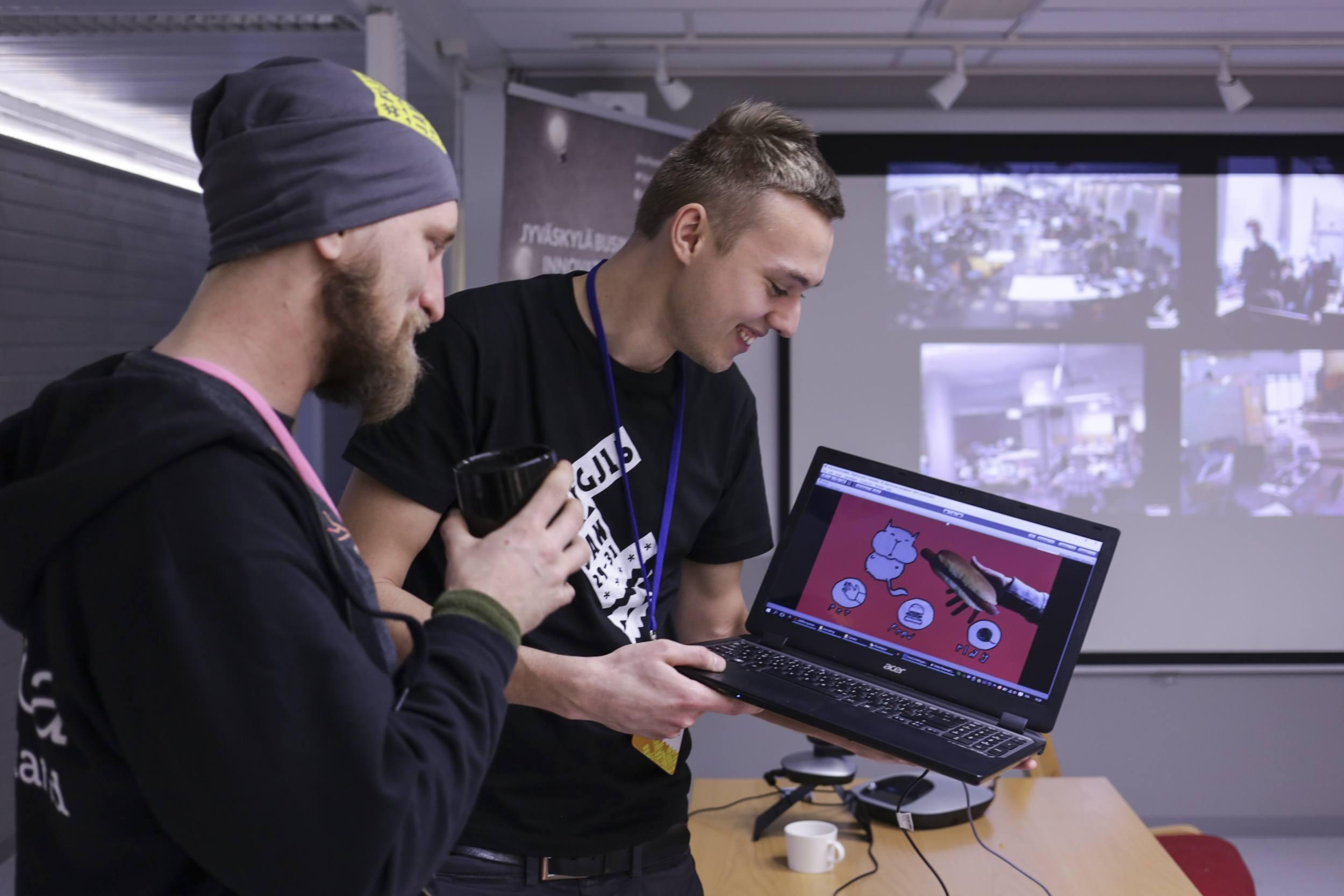
Through the measurement of their heart rate variability for 72-hours, we’ll create a personalized model of their physiological response. That gives us a clear picture how their body and mind has dealt with the weekend. The data is mapped against a diary where they record what they’ve been doing each moment of the event.
As the head-organizer, Harja has been answering phone calls, opening doors and dealing with a variety of administrative tasks for the past 24 hours. Louke splits his time between organizer duties and designing his own game.
“It’s a digital pet game inspired by Tamagotchi. You can feed and pet the cat and play with it. If you feed it too much, it will get fat. There’s also a Japanese spectator who comments on how you’re doing,” Louke explains with a grin.
The Feedback
Both Harja’s and Louke’s reports are dominated with red bars. The weekend has left their energy levels significantly lower than way behind from where they started on Friday.
“If this had been your typical weekend, I would be worried for both of your health,” Jaakko Kotisaari, Firstbeat’s analyst says in the feedback session the following Tuesday.
“Red bars show that your activity levels have been up. It can be negative or positive stress. It’s clear you had many irons in the fire. On average it’s okay to have 40-60 % of stressful activity within 24 hours,” Kotisaari says.
“After all, life shouldn’t be stress-free. It’s about balancing between stress and recovery. The goal of these assessments is to learn how to keep up the balance and recover during even the most stressful periods,” Kotisaari adds.
“It was surprising to see how stressful organizing was for the body. It didn’t feel that hard,” Louke says.
Friday – Alcohol, energy drinks and stress can ruin even a long sleep
As head organizer, Harja was busy Friday making sure everything was ready for the event.
“I wasn’t making a game myself, but helping others and seeing people solving problems, gave me an upbeat feeling,” Harja explains.
“Despite the stressful day you slept and recovered very well the following night. Unlike Louke, who had only 1 hour and 34 minutes of recovery during the night,” Kotisaari analyzes the graphs.
“On Friday night, we were conceptualizing our game. We just watched cat videos and drank few beers. I also drank an energy drink, which I never normally do. I slept quite long (almost 7 hours) for this kind of weekend, but didn’t feel very rested in the morning,” Louke says.
“Alcohol damages the ability of sleep to restore your body. Usually, after two portions it starts to slow your recovery since it makes body toxic and burning the alcohol keeps the body active even during the sleep. When you add energy drink to the mix, it slows recovery even more. That kind of sleep doesn’t go to waste, but it doesn’t fuel you up for the next day,” Kotisaari explains.
According to data contained in the Firstbeat research database, people should spend, on average, 30 percent of their day recovering.
“Harja’s recovery time on Friday was at 28 percent, which is excellent for this kind of weekend. But Louke has only 17 percent which leaves the body tired,” Kotisaari says.
Saturday – Most hectic day of the weekend
Based on Harja’s and Louke’s experience from previous jams, Saturday is the day when jammers get the most done.
“Saturday evening is the most intense time… people get into a flow-mode,” Louke says.
Harja’s assessment chart from Saturday is a mix of long red bars with a few blue peaks of physical activity.
Between all the chaos there’s one green moment of recovery.
“It was a phone call to my girlfriend. It eased some tension,” Harja says.
Louke’s concentrated mostly on the game which shows in the report as steady red.
“I started to feel the effects of sleep-deprivation quite early, and it escalated into a headache in the evening. Again, I stayed awake until maybe three o’clock and had a couple of beers and some energy drink,” Louke explains.
Louke had a long sleep session between Saturday and Sunday, but again with very little recovery. Harja spent the night at the Jam site and didn’t get much of recovery either.
“I thought that I had a good night’s sleep. I had an inflatable mattress and a sleeping bag, and I woke up once to pump more air into it. It may have affected my sleep quality. Also, I had a few beers in the evening,” Harja says.
Sunday: Finishing the game before deadline can be hard for the body
On Sunday, teams had to finish their games and upload them to Global game Jam server before 5 pm.
The last day of the event was quite easy for Harja, since he didn’t have a game to finish. At the same time, Louke was finishing his digital pet game. His sprint before the deadline appears as peaks in the graph documenting his stress and recovery levels.
“The hurry to get the game ready on time felt like probably the most stressful event of the weekend,” Louke says.
On Sunday night, after the event was over, Louke finally gets a proper recovery sleep and starts recovering from the weekend’s activities.
“Yes, it was quite chaotic. Next time we’ll definitely have at least one more organizer in the team. There was a bit too much to do.” Harja says.
Outcome: Healthy body can deal with Game Jamming
Performing the Firstbeat Lifestyle Assessment during this intense weekend of activity provided Harja and Louke with some key insights into their personal health and recovery.
“For the past two years I’ve been mostly working, but lately I’ve started a strict training routine. It’s nice to see how it pays off and that my body can cope with even this kind of event. It was interesting to see how low my resting heart rate is. Doctors have mentioned it to me before,“ Harja says.
“Low heart rate comes partly because of your genetics and your fitness affects it too. Endurance athletes have a slower resting heart rate. We would have to measure you in your daily life to know more about it”, Kotisaari says.
Another thing Harja found interesting was how well he recovered during even a short sleep on Friday night.
“I’ve always thought myself as a poor sleeper. I’ve often felt I sleep too little, but still get things done and feel okay. But this gives a hint that I might be a fast recoverer,” Harja says.
“Yes. It probably too has a lot to do with your genes,” Kotisaari says.
For Louke, most fascinating insight was how his body functioned during the end-rush of the event.
“It showed up so clearly from the rest of the day. I would like to do this again during a normal week to learn more,” Louke says.
“To wrap this all up, you couldn’t live like this very long without consequences. But when you take care of three basic pillars of health in your daily life: have a healthy diet, exercise enough, and get the right amount of recovering sleep, you can handle even this kind of unique intense event without much impact on your overall health. Anyhow, this week you need to rest more to gain back the energy debt,” Kotisaari summarizes the experiment.
You can find all the games made at Global Game Jam’s on their website: http://globalgamejam.org/2016/games
If you liked this article, you should subscribe to our mailing list
You might also be interested in
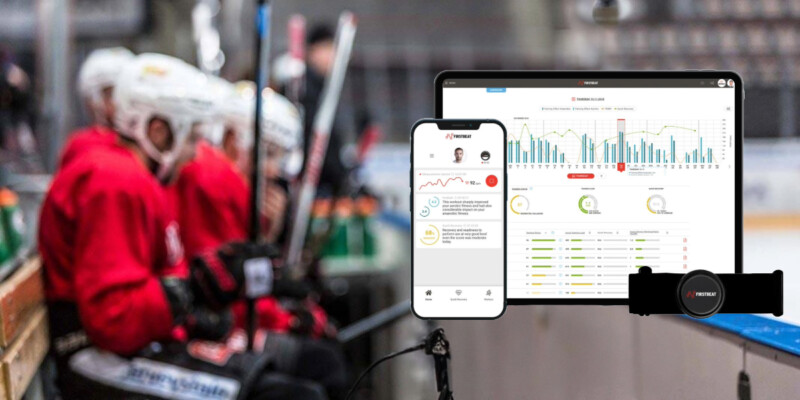
Why Nearly 50% of NHL Teams Rely on Firstbeat for Results
Since 2008, Firstbeat Technologies has played a part behind the scenes at many of the North American league’s 31 franchises.

Firstbeat Technology Helps Optimize Training and Performance of German Ice Hockey Teams
The German Ice Hockey Federation (DEB) and Firstbeat have been in close partnership for many years, with the Federation utilizing the athlete performance management platform to optimize the training and…

